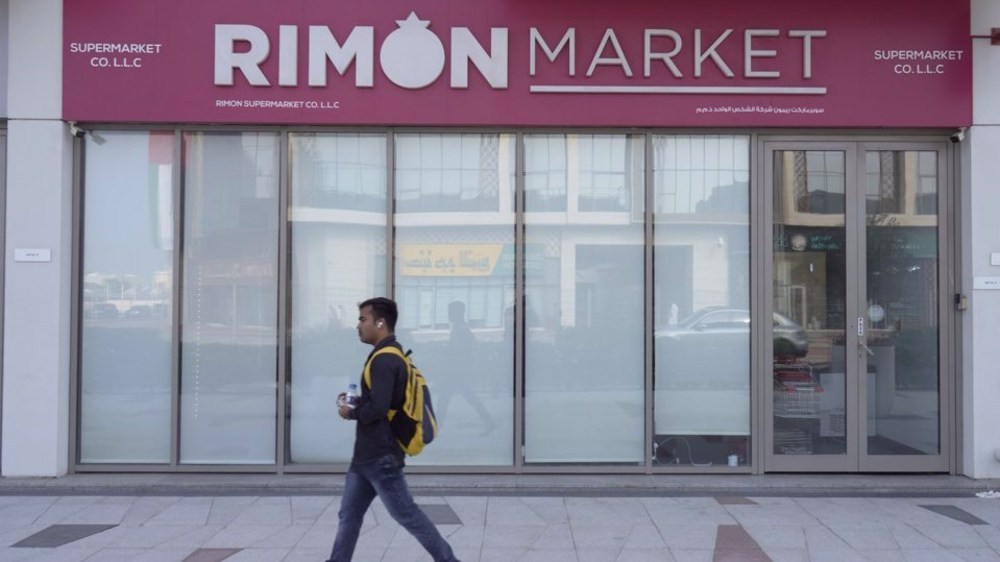Kuwait receives Qatar's response to Saudi-led bloc's demands
Qatar has officially handed over its response to a list of demands requested by the siege countries, Saudi Arabia and its allies, after they agreed to extend the initial 10-day deadline for another two days to address their grievances.
According to Doha-based and state-funded Al Jazeera television network, Qatar’s Foreign Minister Sheikh Mohammad bin Abdulrahman Al Thani delivered Doha's official response to Emir of Kuwait Sabah al-Ahmad al-Jaber al-Sabah, who has been meditating the dispute, during a short visit to Kuwait on Monday.
No details of the response have been disclosed yet but Sheikh Mohammad had earlier asserted that the so-called list of demands was "made to be rejected."
The unprecedented crisis in the Persian Gulf region unfolded on June 5, when Saudi Arabia, Bahrain, the United Arab Emirates (UAE) and Egypt cut ties with Qatar, officially accusing it of "sponsoring terrorism" and destabilizing the region. Doha, however, has slammed the measures as unjustified, saying they are based on false claims and assumptions.
On June 24, Qatar officially announced that the four countries had sent it a list of 13 wide-ranging demands and given it 10 days to comply with them or face unspecified consequences. The deadline expired on Sunday night, but the Saudi-led bloc agreed to extend it for another 48 hours upon a request by Emir of Kuwait, which is acting as a mediator to resolve the diplomatic rift.
Al-Sabah made the request after Qatar said it would be presenting him with their response on Monday.
The demands include shutting down the Doha-based Al Jazeera broadcaster, a media network that has reportedly been critical especially of Saudi Arabia, scaling back cooperation with Iran, closing the Turkish military base in Qatar, and paying an unspecified sum in reparations. Qatar later said the demands were "unrealistic, unreasonable and unacceptable."

To further pressure Qatar, Saudi Arabia has totally closed its land border with its tiny neighbor, through which much of Qatar's food supply crossed. Iran and Turkey are now providing Qatar's required food supplies.
On Friday, Qatari Defense Minister Khalid bin Mohammad al-Attiyah reiterated his condemnation of the crippling blockade and called it a "bloodless declaration of war" against Doha.
It is, however, not clear what further punitive measures the siege countries will adopt if Doha fails to meet the demands. Last week, the UAE's ambassador to Russia Omar Ghobash, in an interview with Britain's Guardian newspaper, named some further sanctions likely to be imposed on Qatar.
The Saudi-led bloc, according to Ghobash, can expel Qatar from the six-member Persian Gulf Cooperation Council. The siege countries can also tell their economic partners to either carry on business with them or with Doha.
The punitive measures against Qatar have drawn condemnation from rights groups, including Amnesty International, which says the diplomatic dispute has been toying with thousands of lives.
The coordinated move against Doha is spearheaded by Riyadh, which often manages to have its vassal states fall into line. Saudi Arabia itself is known as the main sponsor of the violent Wahhabi terrorists it has accused Qatar of supporting. Some analysts believe the Saudi anger is rather because Qatar acts more independently of Riyadh, including in its relations with Iran.
'Next to impossible' to rescue patients from Gaza's Kamal Adwan Hospital: Director
VIDEO | Vietnam current prosperity
Report blames gasoil exports for shortage at Iranian power plants
VIDEO | Hind Rajab Foundation names Israeli war criminals vacationing after Gaza genocide
VIDEO | Australians rally for Gaza ahead of Christmas festivities
VIDEO | Attacks on Sana'a
Iran reports further drop in annual inflation rate in December
Israel indicts two settlers over suspected spying for Hezbollah














 This makes it easy to access the Press TV website
This makes it easy to access the Press TV website